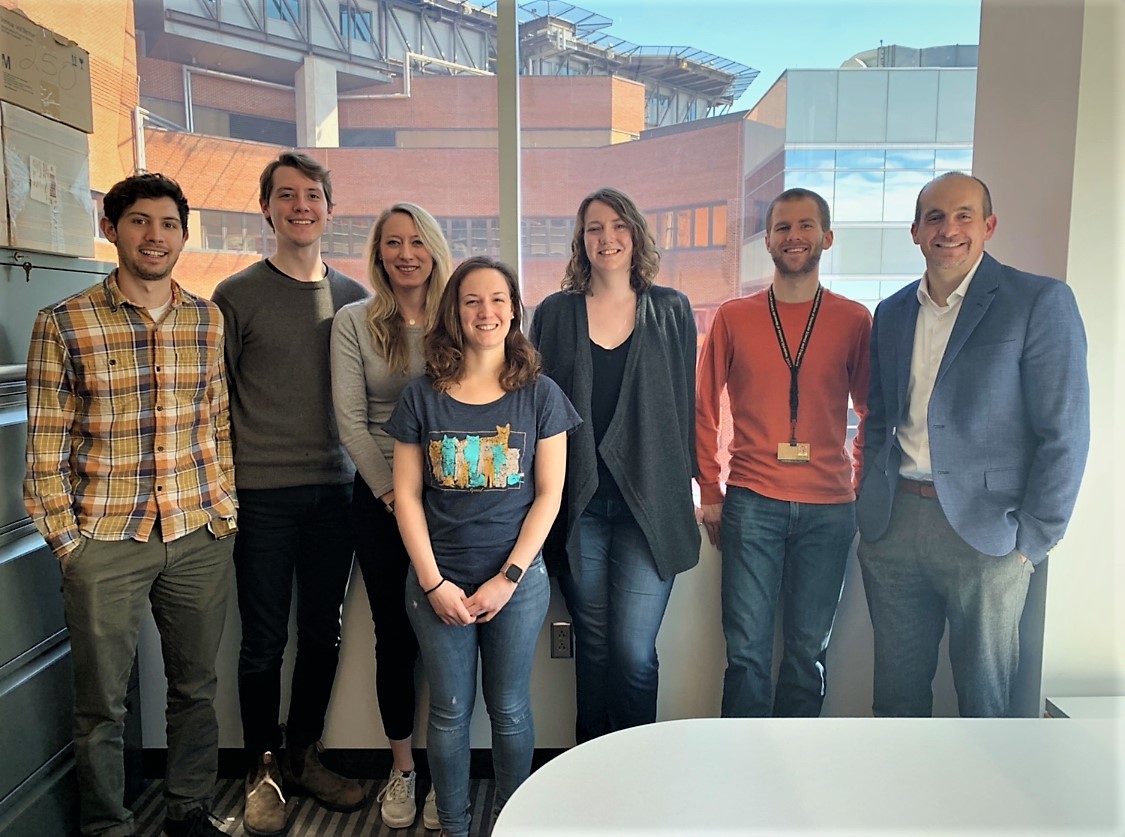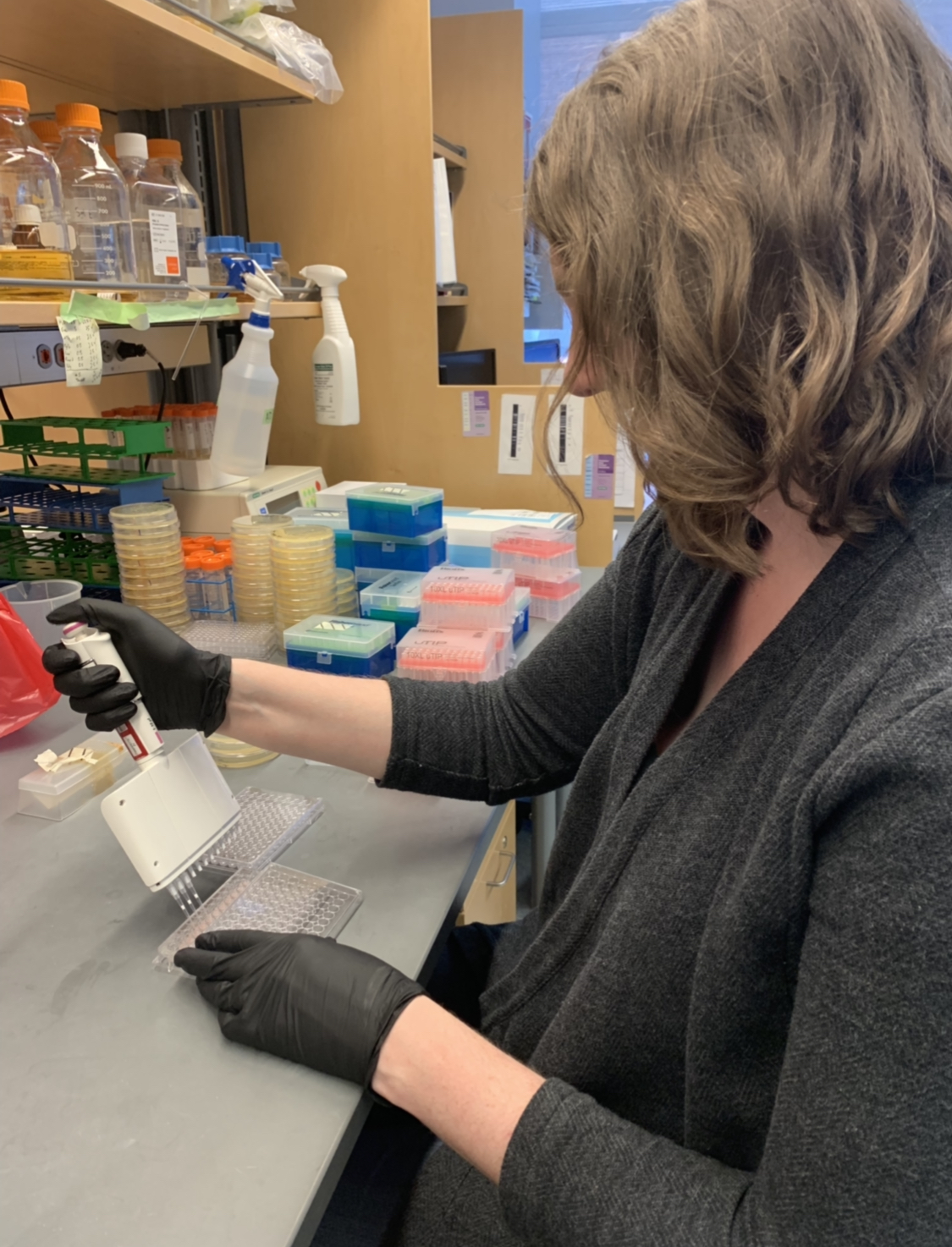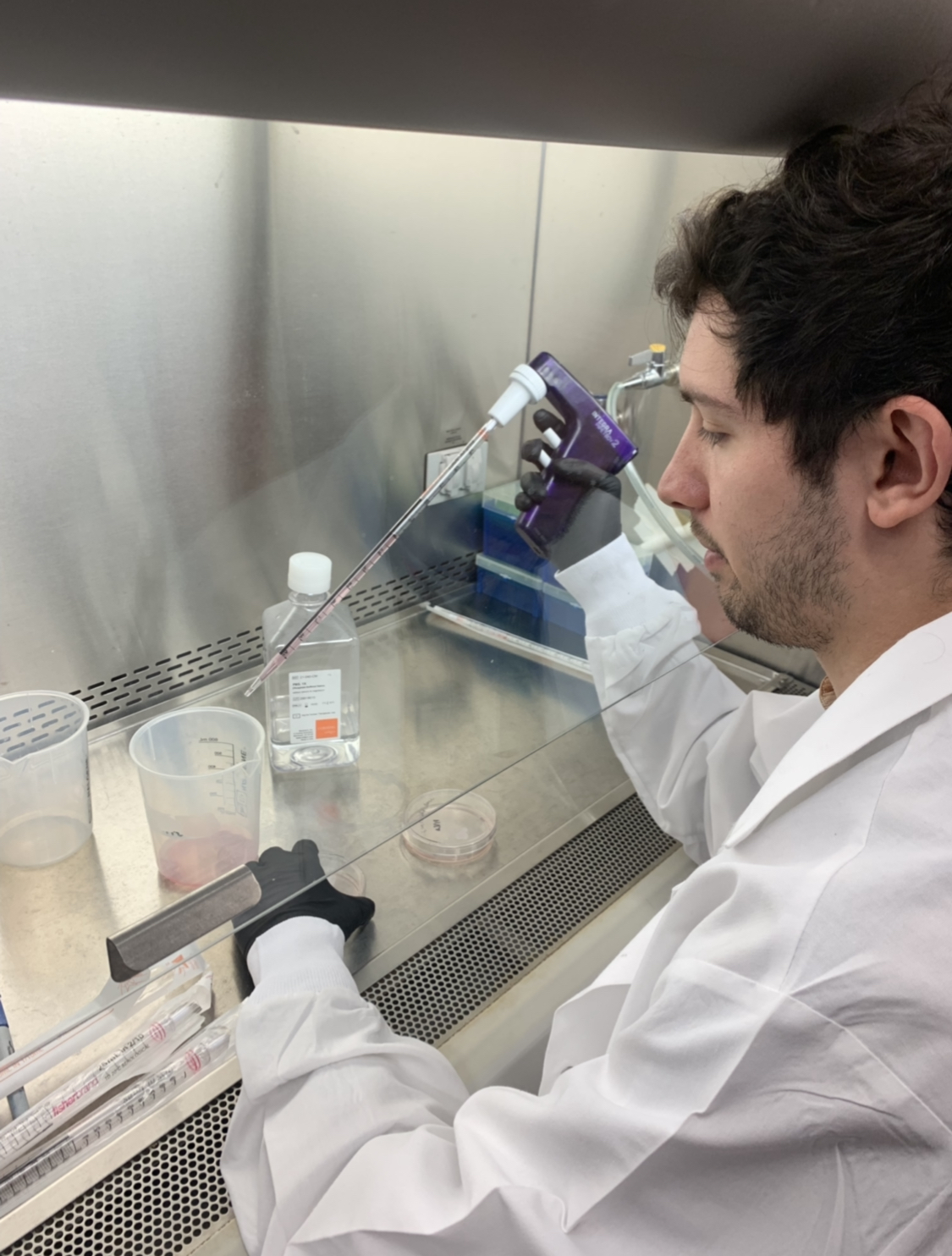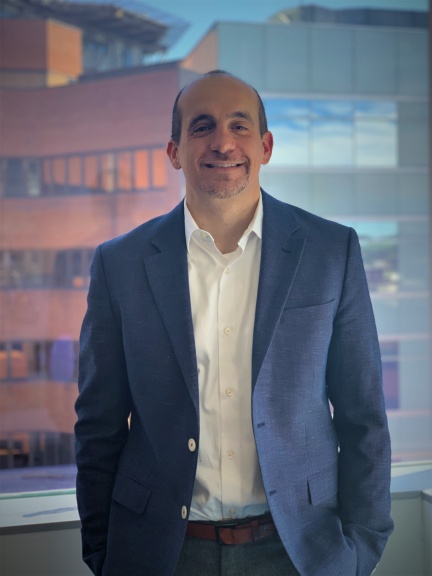Dr. Jim Cassat is an Assistant Professor of Pediatrics and Pathology, Microbiology, and Immunology and in the Division of Pediatric Infectious Diseases. He is also an Associate Director of VI4.
His lab’s research focuses on host-pathogen interactions during invasive bacterial infection, with a special emphasis on understanding how infection and inflammation perturb musculoskeletal cell biology.
The Cassat Lab has developed a variety of tools to understand how bacteria and inflammation trigger changes in bone biology, including a murine model of Staphylococcus aureus osteomyelitis, high-resolution 3D imaging of bone remodeling, and cell culture models of osteoblast and osteoclast proliferation/function.
They graciously let us take some photos of them, in the lab, and answered our questions, beginning with "What’s going on in your lab that we should get excited about?"
Dr. Cassat responded, "Everything! At the core of our lab, we are interested in understanding how cells in complex tissues sense and respond to bacterial pathogens and the microbiota, and how these responses activate the immune system or alter tissue homeostasis. We have chosen more specifically to study bone infections (osteomyelitis) as a paradigm for understanding how microbes and inflammation alter resident cells. Bone is such an amazing tissue. Resident cells are constantly remodeling our bones to ensure that they remain healthy. In fact, it is estimated that our whole skeleton is replaced on average every 10 years!" Our spotlight interview continued from there.

Cassat Lab, L to R: Chris Peek, Jacob Curry, Laura Fulbright, Jenna Petronglo, Aimee Wilde, Caleb Ford, Jim Cassat
What is something that makes your lab team or your research program really special?
I think our group is special because we are spanning so many scientific fields: immunology, microbial pathogenesis, microbiome sciences, bone cell biology, infectious diseases, epigenetics, etc. The only way this works is to have trainees that are incredibly creative and willing to get out of their comfort zone. I have been extremely fortunate to have such an amazing group in my lab.
What is one topic in your field that you are excited about right now?
With the rise of antibiotic resistance, I am particularly excited in deploying local or targeted therapies to treat invasive infections. Bone infections often require surgery, so our group and many others are thinking about how we can alter the efficacy of antibiotics, improve tissue healing, and activate effective immune responses with local delivery of compounds. In the age of 3D printers, people are getting quite creative with building custom drug delivery systems!
Are there any trends in your field that you think people should be aware of (good or bad)? What topics do you think we will be talking about in 5 years? 10 years?
I am really optimistic about our field in general. It is such an exciting time to be a microbiologist. I think in the next 10 years we are going to have an unprecedented appreciation for the functions of bacteria that live on or in our bodies, rather than just measuring the abundance of these microbes. As an infectious diseases doctor, I am also particularly thrilled that we are beginning to understand the long-standing effects that antibiotics have on our health. I think this data helps us and the public to understand the risk/reward of using antibiotics and encourages stewardship.
What do you think has changed since you've gotten into your field?
When I entered the field of bacteriology, there were only a few published bacterial genomes for clinical isolates of the pathogens I study. Currently, we have more genome data then we know what to do with. I think this is where it becomes critical for us to learn how to use public data repositories to ask questions without completely re-inventing the wheel.
What's your favorite thing about working at VI4/Vanderbilt?
Vanderbilt is my dream job. We are the best-kept secret in microbiology / microbial pathogenesis. With the advent of VI4, we are building an incredible community of researchers across many different disciplines to study infectious disease, immunology, and inflammatory disease. I particularly enjoy that in the same day, I can see patients that have overcome a serious infection, study that same infection in models in my lab, and then hear talks about the next generation of antibiotics that might work even better to treat the infection. I also really enjoy interacting with people outside of my field and using some of the amazing technologies that you can only find at Vanderbilt. A great example of this is our ability to image host-pathogen interactions with unprecedented resolution thanks to resources in the VUIIS and MSRC.
How/When did you know wanted to become a scientist?
I actually wrestled with becoming either a physician or scientist or physician-scientist for many years! It wasn't until I had tried both that I truly appreciated the positives of both jobs. I also didn't realize how much I would enjoy being a PI until I had my own lab. There are parts of this job that you really can't experience/enjoy until you complete all of the training.
What advice you'd give to a new graduate student?
Regarding the question about my own career, I would encourage graduate students to keep an open mind about careers. Even though we can observe other PIs or mentors, you really can't appreciate how incredible being a scientist is until you are through the training process. It is completely okay to have doubts along the way! You may just need to keep pushing to get to the good stuff.

Aimee Wilde,
Graduate Student - Department of Pathology, Microbiology, and Immunology

Christopher Peek,
Microbe-Host Interactions Medical Scientist Graduate Training Program
